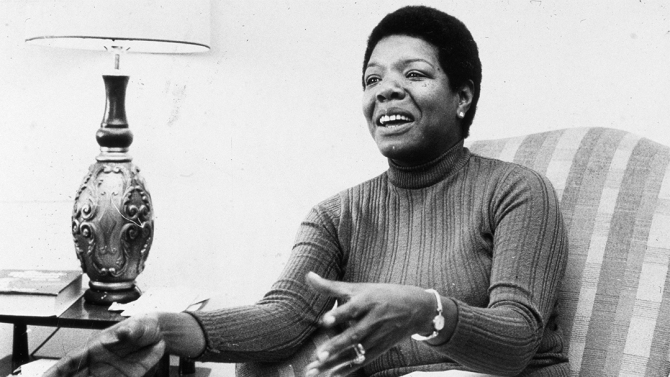 Martin Luther King Jr. was shot dead on Dr. Maya Angelou’s 40th birthday. It was her friend Jimmy, or James Baldwin as we know and revere him, that pulled the late writer out of her devastated stupor, dragging her to a party and encouraging to tell her personal truth through the written word. Those words became her critically acclaimed autobiography, “I Know Why The Caged Bird Sings.” It was a book that would forever change the landscape of American literature, redefining what was acceptable for Black women to talk about publically. Two and a half decades later, Dr. Angelou extended that simple act of kindness when she comforted a young artist on a film set. This young man was in turmoil, nearly suffocating to death under a rage that he could not contain; we knew him as the great Tupac Shakur.
Martin Luther King Jr. was shot dead on Dr. Maya Angelou’s 40th birthday. It was her friend Jimmy, or James Baldwin as we know and revere him, that pulled the late writer out of her devastated stupor, dragging her to a party and encouraging to tell her personal truth through the written word. Those words became her critically acclaimed autobiography, “I Know Why The Caged Bird Sings.” It was a book that would forever change the landscape of American literature, redefining what was acceptable for Black women to talk about publically. Two and a half decades later, Dr. Angelou extended that simple act of kindness when she comforted a young artist on a film set. This young man was in turmoil, nearly suffocating to death under a rage that he could not contain; we knew him as the great Tupac Shakur.
I was born during the final three decades of Dr. Angelou’s life. As such, she has always been familiar to me, her poems and books readily available; her words at once recognizable and irreproachable. She was this regal figure in many ways; a heroine for a girl born at the tail end of the 20th century. Dr. Angelou was, as director John Singleton called her, “a redwood tree, with deep roots in American culture.” Like her friend James Baldwin, she had a deep and innate understanding of Blackness and what it meant to be Black, not just in America but across the globe. And yet, it was not just her understanding of Black life that made her so prolific; she also understood Black womanhood in a way that spoke and continually speaks to the Black female soul.
Directors Rita Coburn Whack and Bob Hercules’ expansive documentary, “Maya Angelou: And Still I Rise” guides audiences from Dr. Angelou’s very humble beginnings to the final days of her astounding life. The film doesn’t just tell her story, but it shows in great detail how history, cultural events and particular moments significantly affected Dr. Angelou’s world view while galvanizing the activist within her.
Continue reading at Shadow and Act.
